38 results in Gallica
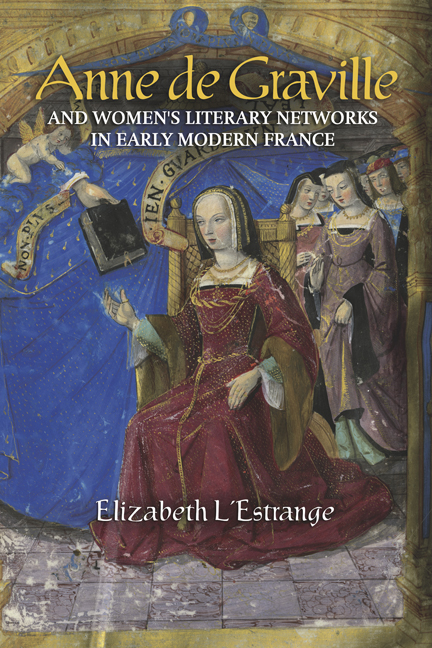
Anne de Graville and Women's Literary Networks in Early Modern France
-
- Published by:
- Boydell & Brewer
- Published online:
- 11 January 2024
- Print publication:
- 11 April 2023
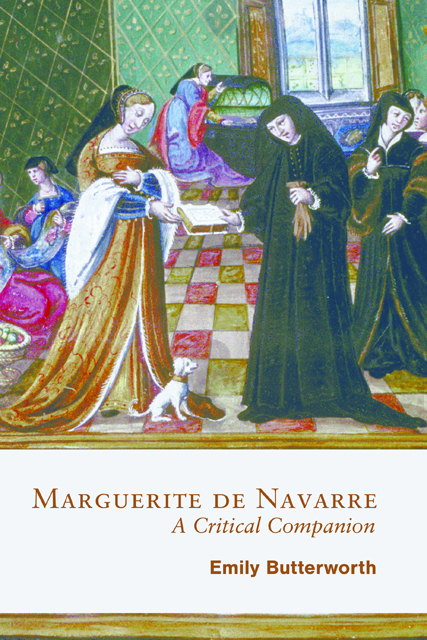
Marguerite de Navarre
- A Critical Companion
-
- Published by:
- Boydell & Brewer
- Published online:
- 20 December 2023
- Print publication:
- 08 April 2022

Three Preludes to the Song of Roland
- Gui of Burgundy, Roland at Saragossa, and Otinel
-
- Published by:
- Boydell & Brewer
- Published online:
- 17 December 2023
- Print publication:
- 18 July 2023

Machaut and the Medieval Apprenticeship Tradition
- Truth, Fiction and Poetic Craft
-
- Published by:
- Boydell & Brewer
- Published online:
- 11 March 2023
- Print publication:
- 17 April 2014
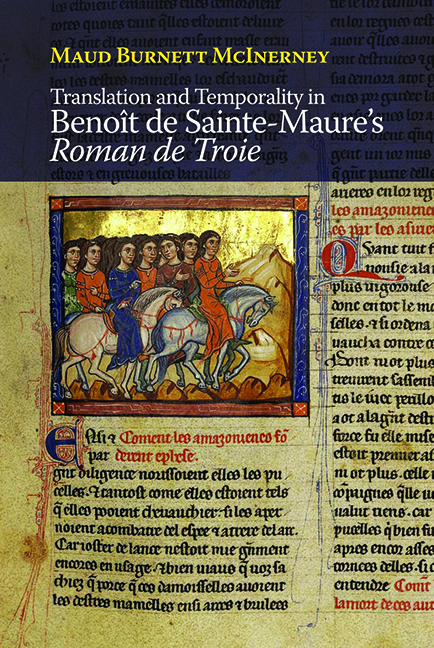
Translation and Temporality in Benoît de Sainte-Maure's Roman de Troie
-
- Published by:
- Boydell & Brewer
- Published online:
- 07 October 2022
- Print publication:
- 29 October 2021
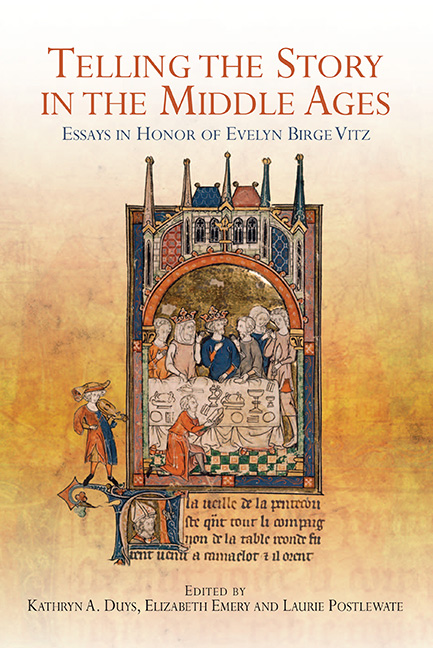
Telling the Story in the Middle Ages
- Essays in Honor of Evelyn Birge Vitz
-
- Published by:
- Boydell & Brewer
- Published online:
- 17 June 2021
- Print publication:
- 18 June 2015
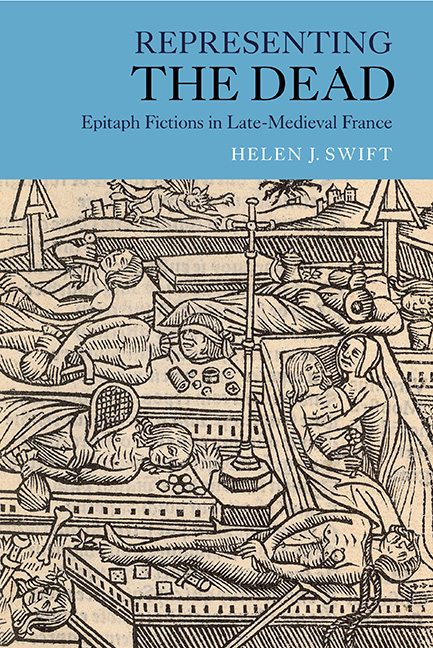
Representing the Dead
- Epitaph Fictions in Late-Medieval France
-
- Published by:
- Boydell & Brewer
- Published online:
- 17 June 2021
- Print publication:
- 20 October 2016
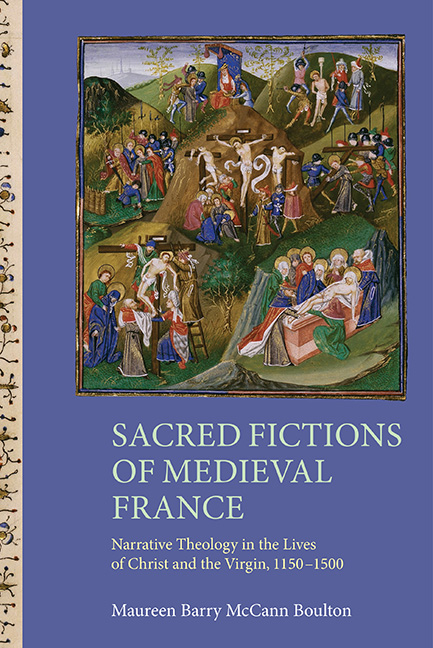
Sacred Fictions of Medieval France
- Narrative Theology in the Lives of Christ and the Virgin, 1150–1500
-
- Published by:
- Boydell & Brewer
- Published online:
- 11 June 2021
- Print publication:
- 16 July 2015
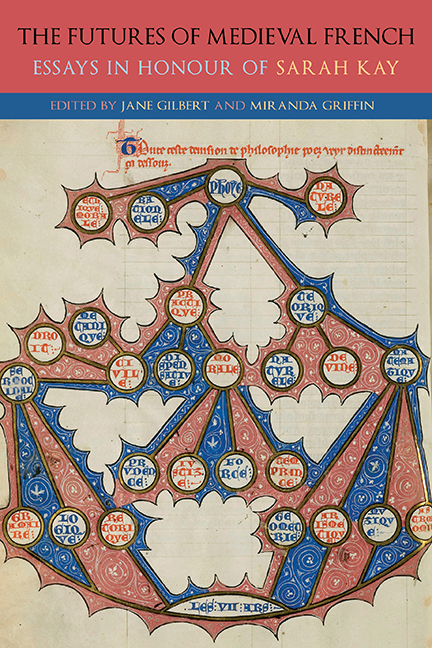
The Futures of Medieval French
- Essays in Honour of Sarah Kay
-
- Published by:
- Boydell & Brewer
- Published online:
- 27 May 2021
- Print publication:
- 21 May 2021
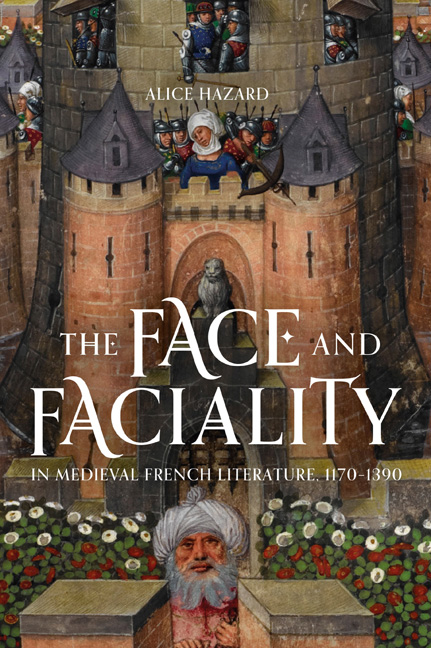
The Face and Faciality in Medieval French Literature, 1170–1390
-
- Published by:
- Boydell & Brewer
- Published online:
- 17 April 2021
- Print publication:
- 21 May 2021
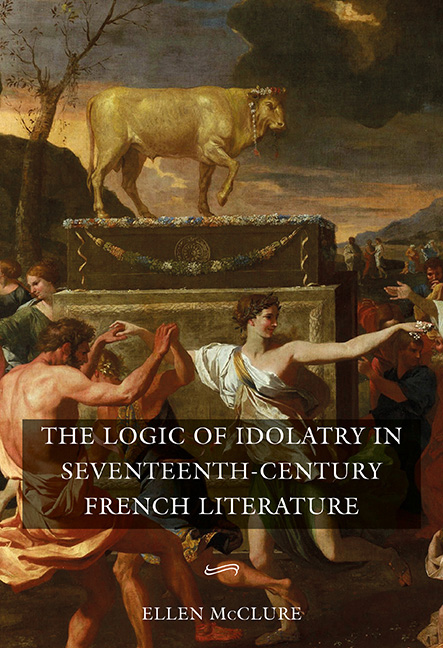
The Logic of Idolatry in Seventeenth-Century French Literature
-
- Published by:
- Boydell & Brewer
- Published online:
- 28 April 2020
- Print publication:
- 17 April 2020
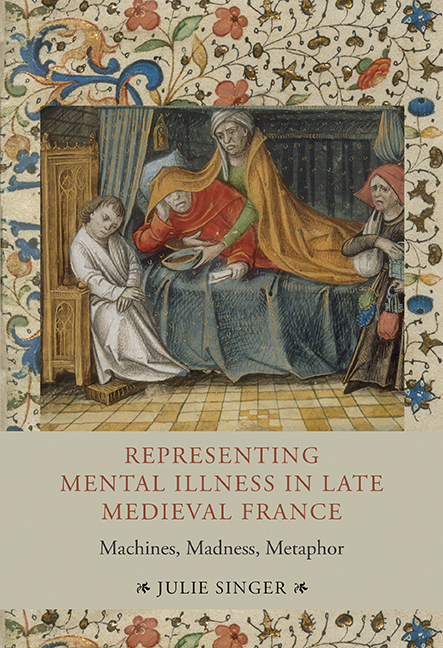
Representing Mental Illness in Late Medieval France
- Machines, Madness, Metaphor
-
- Published by:
- Boydell & Brewer
- Published online:
- 15 October 2019
- Print publication:
- 19 October 2018
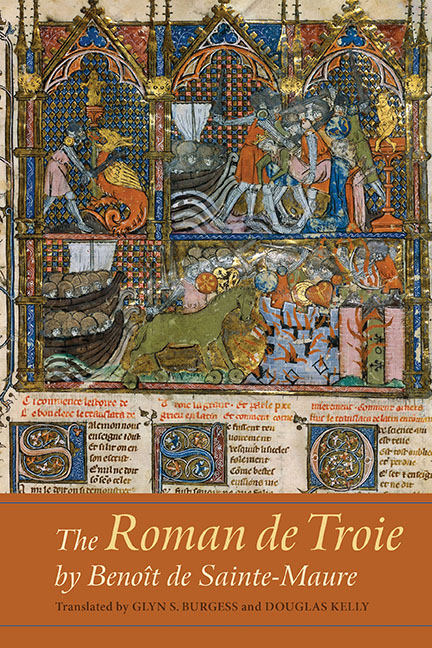
The Roman de Troie by Benoît de Sainte-Maure
- A Translation
-
- Published by:
- Boydell & Brewer
- Published online:
- 15 February 2018
- Print publication:
- 30 June 2017
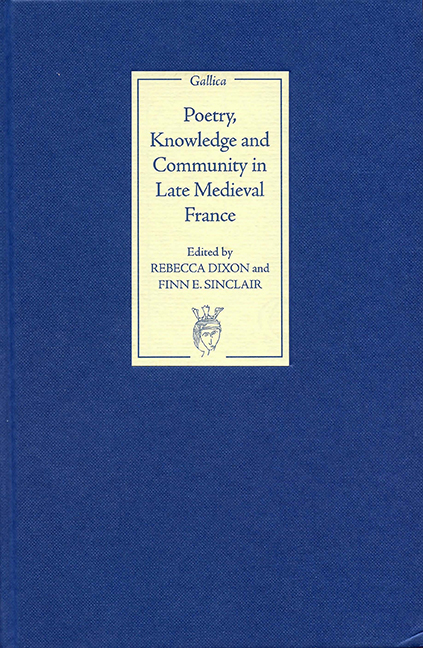
Poetry, Knowledge and Community in Late Medieval France
-
- Published by:
- Boydell & Brewer
- Published online:
- 25 October 2017
- Print publication:
- 20 November 2008
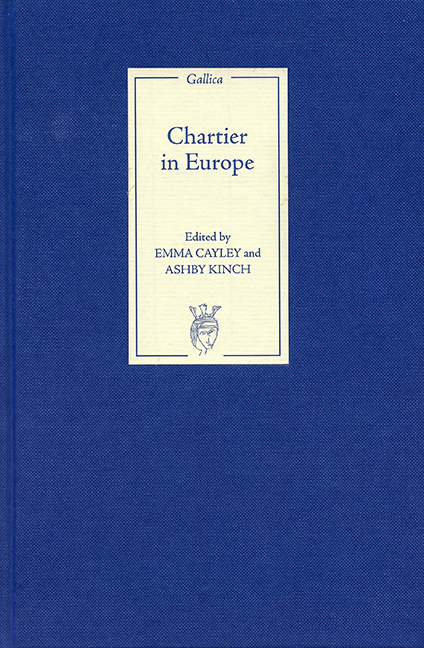
Chartier in Europe
-
- Published by:
- Boydell & Brewer
- Published online:
- 24 October 2017
- Print publication:
- 18 September 2008
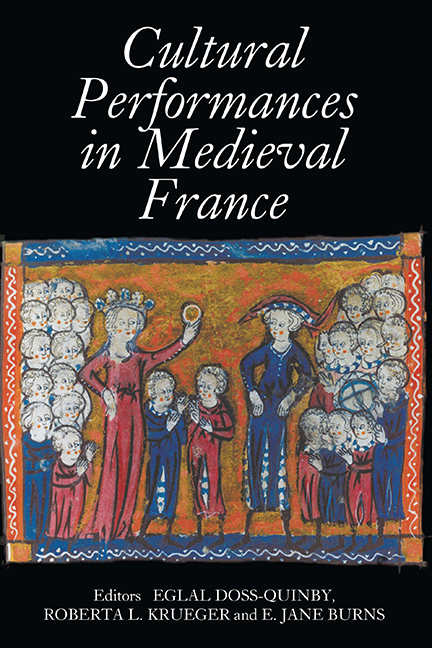
Cultural Performances in Medieval France
- Essays in Honor of Nancy Freeman Regalado
-
- Published by:
- Boydell & Brewer
- Published online:
- 24 October 2017
- Print publication:
- 15 March 2007
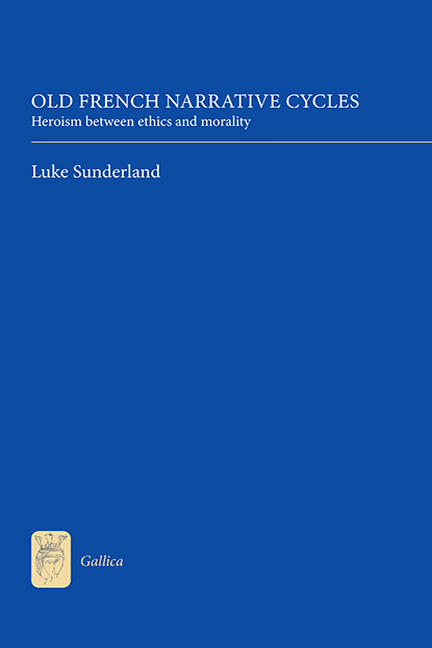
Old French Narrative Cycles
- Heroism between Ethics and Morality
-
- Published by:
- Boydell & Brewer
- Published online:
- 09 May 2017
- Print publication:
- 15 April 2010
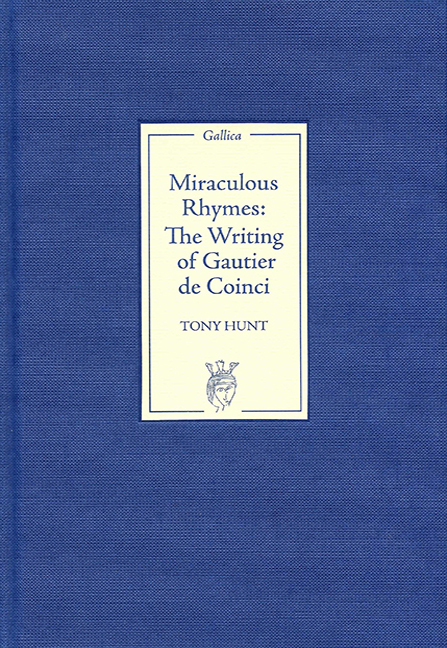
Miraculous Rhymes
- The Writing of Gautier de Coinci
-
- Published by:
- Boydell & Brewer
- Published online:
- 29 April 2017
- Print publication:
- 19 September 2007
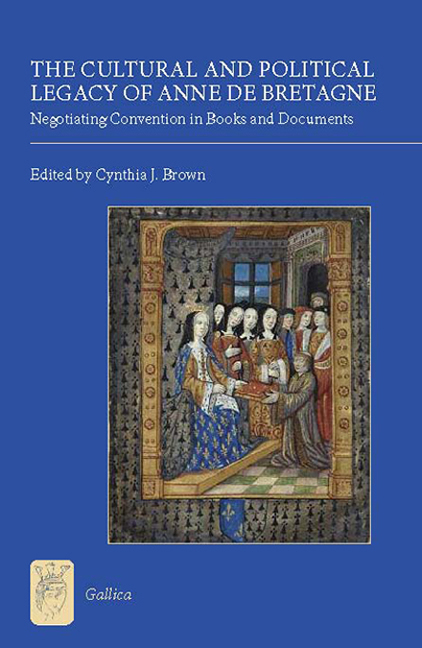
The Cultural and Political Legacy of Anne de Bretagne
- Negotiating Convention in Books and Documents
-
- Published by:
- Boydell & Brewer
- Published online:
- 28 April 2017
- Print publication:
- 20 May 2010
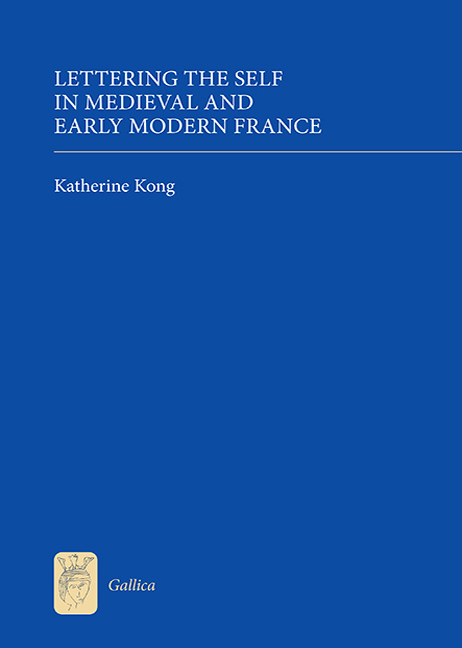
Lettering the Self in Medieval and Early Modern France
-
- Published by:
- Boydell & Brewer
- Published online:
- 28 April 2017
- Print publication:
- 15 July 2010

